-
What Happens to Recycled Materials
Recycling is an innovative process that transforms used and discarded objects into useful materials. This video will provide you with a behind the scenes look at what happens to your recycled materials after they leave your home or office. After a recycling truck collects your bin, it will bring the materials to a sorting facility. Next, paper, plastics, and glass are separated by type. If you plan to recycle near Atlanta, it is important to learn about how recyclables should be sorted before they are picked up.
A thorough waste disposal plan can easily integrate recycling into your daily business operations. If you are wondering about how you can get the most out of your recycling, do not hesitate to get ahold of a waste disposal company in your area. Your team can help you cut back on your waste while also saving you money.
-
The Importance of a Workplace Recycling Program
The typical office environment creates significant amounts of waste paper, cardboard, and other materials. Rather than sending these paper and plastic products to the dumpster, you may want to consider planning and implementing a recycling program for your business. With assistance form a waste disposal company that specializes in recycling in Atlanta, you will be able to create a recycling program that is easy for all of your staff members to follow. When you start recycling, you will be amazed at the amount of recyclable waste that is generated by your business. Here is a look at the importance of a workplace recycling program.
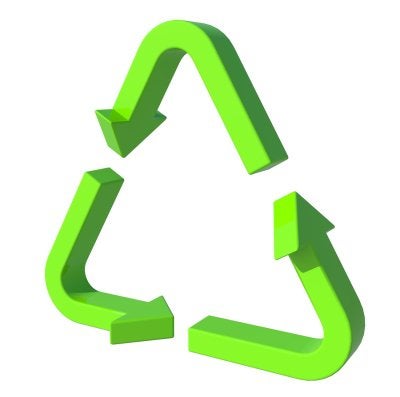
Improve Environmental Impact
A workplace recycling program will help you improve the environmental impact of your business. With many companies choosing to go green with their management and business practices, creating a workplace recycling program is a great way to join the eco-conscious revolution. Taking steps to reduce your carbon footprint and protect natural resources through recycling can also help you draw in new customers and clients who are environmentally minded.
Reduce Average Costs
When you create a recycling plan for your workplace, you can also help to reduce your average operating costs. Recycling paper, plastic, and metal goods will help your employees improve their awareness of the materials that they are using on a daily basis. As a result, you may find that your workers have improved mindfulness regarding conservation and reusing supplies. Over the course of a year, even small recycling measures can translate to significant cost savings.
Raise Company Awareness
When you start a new recycling program in your business, this is also a fantastic opportunity to promote the eco-conscious image of your company. For example, you may want to send out a press release that offers additional information about the new recycling measures that you are taking in your workplace. Even making initial steps towards creating a recycling plan will help boost your image and profile with your community and customers.
-
Examining Common Types of Manufacturing Waste
Manufacturing facilities rely on efficiency and streamlined production methods in order to create their products. However, even the most efficient manufacturing plants are bound to generate some form of waste. By working with a company offering waste management and recycling near Atlanta, you can reduce the amount of materials that you discard during the manufacturing process, while also making sure that your waste is disposed of in a safe and responsible manner. If you are creating a waste disposal plan for your manufacturing plant, read on to learn more about the most common types of manufacturing waste.
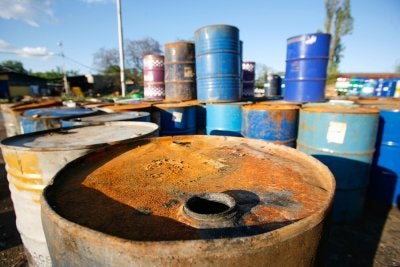
Solid Waste
Solid waste is a term that describes any paper, plastic, metal, or carbon based materials that are left over after the manufacturing process is completed. Some examples of solid waste include cardboard, scrap metals, or packaging materials. While some solid waste must be thrown in a dumpster, other forms of waste can be easily recycled. Recycling paper and cardboard can help you cut back on the carbon footprint of your manufacturing process.
Chemical Waste
Depending on the nature of the manufacturing process, certain facilities may generate large amounts of chemical waste. Unlike solid waste, which can be placed in a bin for disposal, chemical waste must be contained using special disposal methods. Many types of chemicals can cause environmental harm when they are not disposed of in a proper manner. Your waste management specialists can advise you on best chemical waste disposal practices for your business.
Toxic Waste
Toxic waste is an unavoidable byproduct of many manufacturing methods. While you may not be able to reduce the toxicity of certain kinds of waste, you can make sure that any toxic substances that are created in your plant are not allowed to contaminate the surrounding environment. Toxic waste disposal and management is regulated by governmental organizations, so you will want to make sure that your disposal plan is on par with environmental regulations for your county or state.
-
What You Need to Know About Industrial Waste Management
Our society relies on industrial manufacturing to produce the many appliances, materials, and other items that we use on a day to day basis. As the owner or operator of an industrial company, it is your responsibility to make sure that your business is operating in accordance with industrial waste management regulations. A company that specializes in waste near Atlanta will be able to help you reduce, reuse, recycle and ensure that any environmentally toxic materials that are created in your facilities receive proper disposal. Let’s explore some important guidelines that every business owner should know about industrial waste management.
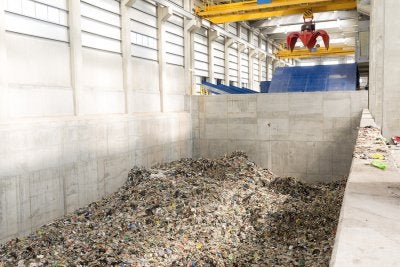
Waste separation is necessary.
While it may be tempting to save time and energy by disposing of your waste materials in the same container, it is actually very important to create a waste separation plan for your industrial operation. Metals, plastics, and organic materials decompose at very different rates. By taking the time to separate waste by type, you can make sure that each type of material heads to the correct disposal facility.
Toxic materials should be decontaminated or contained.
Certain industrial processes may create waste materials that have a toxic effect on the environment. When you are creating an industrial waste management plan, you will want to work with a team of professionals to create a solution for decontaminating or containing your hazardous waste. Improper disposal of harmful substances is a very serious crime that can impact the future success of your business as well as the environment around you.
Recycling and recovery can help reduce costs.
Your industrial waste management plan can also include provisions for recycling or reclaiming materials. If you work with metals, for example, you may want to repurpose scrap metals for other uses. Recycling is a great way to reduce your overall waste output, while also helping to cut down on your overall expenses. If you have questions about how to create an industrial waste management plan, be sure to contact a waste disposal company that serves your area.
-
How to Identify the Recyclable Items in Your Workplace
Workplace recycling programs are a simple and effective way to reduce a company’s waste generation and carbon footprint. It’s common for people to want to do their part and recycle near Atlanta but, in many cases, they aren’t certain about what materials are supposed to go in the recycling bins .
The first step in identifying what items in your workplace are recyclable is to take a closer look at the recycling bins. Many establishments post a guide either on or near the bin to help employees recycle effectively. Also, pay attention to the color of the bin. Your workplace may have separate bins for compost, metal, cardboard, paper, or plastic recycling.
If your recycling bins offer no guidance about what should go inside of them, speak with an employee who works with the recycling program or contact the company that handles the recycling for your workplace. Some of the most common recyclable materials you might find yourself disposing of are paper, cardboard boxes, plastic bottles, aluminum cans, and plastic containers.
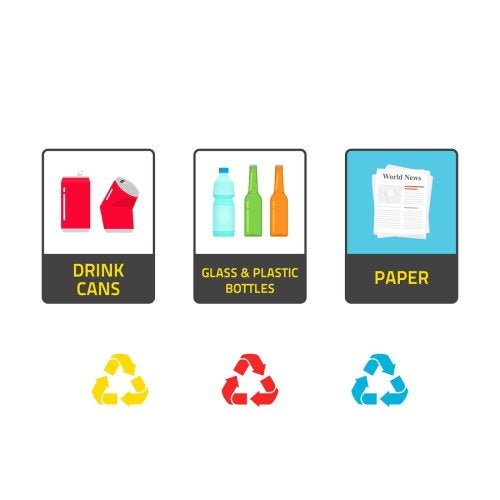
-
Are You Overlooking Recycling Opportunities at Your Restaurant?
If your restaurant currently participates in a program for recycling serving Atlanta , you may be wondering how you can further reduce your establishment’s carbon footprint. Luckily, you have several options available to you that can help your restaurant recycle more and waste less.
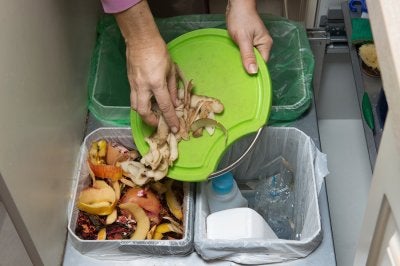
Starting an Organic Recycling Program
For farmers and gardeners, composting is a widely-used method for reusing food and foliage scraps to create a nutrient-dense amendment for soil. Today, composting is becoming a popular and more viable option for restaurants as well. Through organic recycling waste management programs, your establishment can increase its recycling rates, put food waste to better use, and promote a greener image to your customers and employees. Organic waste recycling programs often accept a wide range of food products that may include paper products, fruits, vegetables, meat, seafood, plants, cut flowers, dairy products, and eggs.
Using More Recyclable Materials
Once you have a recycling program in place in your restaurant, you can begin to look for additional opportunities for preventing waste. Your establishment probably uses quite a few materials that aren’t recyclable. First, find out if you can find recyclable alternatives to replace your non-recyclable supplies, and then create a strategy for using less of the items that do not have a recyclable counterpart. Cutting down on the amount of non-recyclables that are used in your restaurant is eco-friendly and can save you on supply and waste disposal costs.
Evaluating Your Recycling Practices
If you have educated your staff about the benefits and proper methods of recycling and make it easy for them to do so with the convenient placement of recycling bins, then you have already taken a significant step toward sustainability. However, it can be easy to overlook areas where your establishment can make improvements. Scheduling a waste audit with a waste recovery company will provide a thorough look at your restaurant’s waste production and can alert you to missed recycling opportunities.
-
How Waste Analytics Can Improve Your Company’s Efficiency
Big data is transforming the ways businesses operate by changing the ways business owners and decision makers think. The more data you have, and the better able you are to decipher it, the easier it is to make decisions that will ultimately lower your operating costs and improve your bottom line. This is even true for a part of your operations you might not think much about: waste management. Applying data analytics to waste management can help you manage your waste more efficiently so you can save money while also reducing your company’s impact on the environment. Here’s a look at some of the ways your organization can benefit from waste analytics supplied by a professional waste management provider in Atlanta .
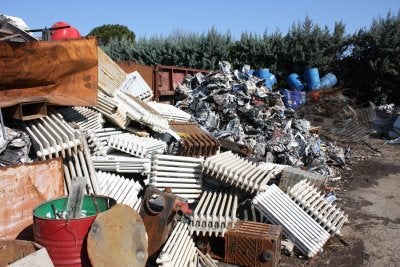
Identify Opportunities to Recycle
Data reveals a lot of things you might otherwise miss, like opportunities to reduce, reuse, and recycle materials you might be throwing away. In addition to doing good for the environment and giving your employees, customers, and shareholders something good to feel about, recycling can also save you money by reducing the amount of new materials you need to buy to replace those being thrown away.
Optimally Schedule Trash Pickups
Regular trash pickups keep your business clean and provide a sanitary environment for workers and customers alike, but too many pickups too often aren’t efficient and can end up costing you money in the long run. Waste analytics can help you schedule the right amount of pickups with your waste management provider to optimally accommodate your needs while reducing total costs.
Discover Other Ways to Save
Waste analytics will provide you with an in-depth look inside your company’s waste practices, including the type and amount of waste generated and how this waste is being disposed of. This information can help you make decisions that will reduce your total waste output, implement an effective recycling protocol, and other eco-friendly (and budget-friendly) practices.
-
A Look at Computer Recycling
Hidden inside computers, even old ones, is a treasure trove of valuable and useful materials that can be transformed and made new. The precious metals inside of a computer are particularly important since recycling them helps reduce the amount of mining and extraction needed to supply makers with these metals. Watch this video to learn more about computer recycling and why you should never throw old computers away.
If you run a business, it’s especially important that you dispose of computers and other sensitive IT equipment as carefully as possible. For peace of mind that your data (and your customer’s data) is secure, trust your computers and sensitive IT assets with a reliable and experienced electronics recycling company in Atlanta . Whether you’re updating your entire IT infrastructure or need to dispose of a single laptop or desktop computer, a comprehensive electronics recycling provider will make sure things are recycling correctly.
-
Eco-Friendly Practices for Industrial Sites
Industrial facilities are at the heart of America’s manufacturing capabilities, but it’s also true that these sites can have a greater toll on the environment than other types of operations and practices. Fortunately, there are some significant benefits to adopting eco-friendly practices that can justify and even accelerate your facility’s commitment to going green. For example, a more profitable operation is the number one reason why industrial facilities decide to adopt more eco-friendly practices. An industrial waste management company in Atlanta can help you connect the dots and make the shift, but in the meantime here are some things you can do to benefit the environment and your bottom line at the same time.
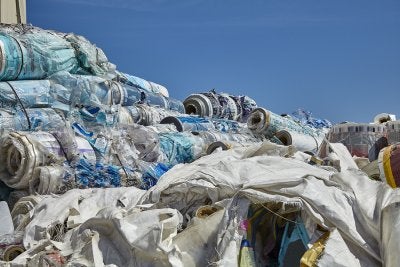
Make the Commitment to “Go Green”
The first and most important eco-friendly practice is simply the commitment to go green at an operational and organizational level. Instituting a company-wide recycling policy and educating employees and stakeholders about the importance of being eco-conscious is the first step towards real changes in your industrial site that benefit the environment.
Improve Facility Energy Efficiency
Although it’s certainly easier said than done, improving your facility’s energy efficiency is one of the best things you can do for the environment and your bottom line. If you get stakeholder buy-in and are committed to reducing your carbon footprint (and your energy costs) look for opportunities to improve energy efficiency by replacing old equipment, performing an energy audit, and other efficiency-improving practices. The Alliance to Save Energy has some tips for boosting the energy performance of your industrial facility .
Reduce, Reuse, and Recycle
The “3 R’s” have been preached and practiced for decades, but it doesn’t mean you can’t benefit from reducing, reusing, and recycling. These practices can lower the amount of energy you consume as well as the amount of materials you purchase, which can save you considerable amounts. A waste management company that offers waste analytics can help you identify areas where recycling can help.
-
Successful Waste Reduction Strategies for Your Business
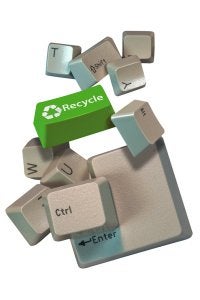 Chances are, your business’s waste disposal and waste management services aren’t as cost-effective or comprehensive as they could be. By adopting a waste management program that focuses on reducing the amount of waste generated, and reusing and recycling salvageable materials, your business can save money and become more eco-friendly. Here are some successful strategies that will help your business reduce, reuse, and recycle in Atlanta .
Chances are, your business’s waste disposal and waste management services aren’t as cost-effective or comprehensive as they could be. By adopting a waste management program that focuses on reducing the amount of waste generated, and reusing and recycling salvageable materials, your business can save money and become more eco-friendly. Here are some successful strategies that will help your business reduce, reuse, and recycle in Atlanta . Implement a Recycling Program
A recycling program is key to lowering your waste disposal costs, reducing the amount of waste your business generates, and reusing valuable materials. Ask your local recycling center for recycling bins, and educate employees on necessary recycling facts and procedures. When you reuse and recycle materials, you decrease the demand for production of new materials, which provides a significant benefit to the environment. You also reduce the amount of landfill space your company requires, and lower your waste disposal cost. Most recycling centers offer paper, wood, cardboard, plastic, electronics, and scrap metal recycling.Analyze Waste Production
Analyzing your waste production provides you with valuable data that can help you reduce waste. Track and record your waste production to determine where you can cut costs, and how you can best implement a recycling program. Once you’re aware of how much waste your company produces, you can identify areas where you can reduce the purchase, production, and use of materials that cannot be reused or recycled, and try to adopt a sustainable waste reduction program.Adopt a Zero Waste Initiative
A zero waste initiative encourages all employees to be aware of their waste production, so that you can reduce, reuse, and recycle as effectively as possible. A zero waste initiative focuses on modifying and regulating the company’s packaging and distribution procedures to include more sustainable, eco-friendly alternatives. You can use recycled products, or recyclable products, in your packaging and distribution materials. Your employees should be involved in the development of a sustainable waste disposal and waste reduction program, so that they feel more invested maintaining its results.
RECENT POSTS
categories
- Uncategorized
- Waste Management Atlanta
- Waste Disposal and Recycling
- Hazardous Waste Disposal
- Chemical waste removal
- solid waste removal
- R3 Program
- Sustainable Organizations
- Sustainable Waste Removal
- Commercial Waste Removal
- Materials Management Program
- Dumpster Rental
- Roll Off Dumpsters
- Construction Site Waste Removal
- Sustainability
- Recycling in Atlanta
- Industrial Recycling
- Industrial Waste Removal Services
- Southern Waste & Recycling
- Waste Removal Atlanta
- Waste Specialists
- Atlanta
- Infographic
- Front Load Dumpsters
- Rear Load Dumpsters
- Reusable Electronics
- Dump Truck Atlanta
- Recyclable Electronics
- Trash Compactors
- Recycling
- Recycling Program
- Office Recycling
- Metal Recycle
- Electronic Waste
